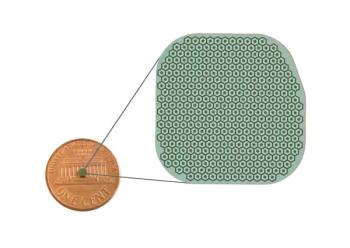
Kentucky ODs win right to perform laser surgery
Optometrists are celebrating the passage of a new Kentucky law giving them the ability to perform laser surgery and employ a wider range of treatment options for patients throughout the state.
"We're concerned about elderly patients with impaired vision who have to drive long distances to receive care they could receive from their hometown eye doctor," Dr. Gaddie said.
As in Oklahoma, the measure allows optometrists to perform such procedures as YAG capsulotomies, argon laser trabeculoplasties (ALT), selective laser trabeculoplasties (SLT), and laser peripheral iridotomies (PI) for narrow-angle or angle-closure glaucoma.
Like the Oklahoma law, the measure does not permit retina laser procedures or laser-assisted in situ keratomileusis (LASIK). Although Oklahoma optometrists may perform photorefractive keratectomy (PRK), the Kentucky legislation prohibits it. The new law also excludes a host of non-laser surgical procedures, including enucleations, cornea transplants, lamellar keratoplasty, cataract surgery, intraocular implants, and removal of eyelid malignancies.
"Because over 3 million Kentuckians are currently served by doctors of optometry, these services will be much easier to access," the KOA said in a prepared statement. "Also, fewer referrals mean reduced Medicaid costs, fewer office visits, and less transportation."
Training and preparation
Before the new law becomes effective June 8, the Board of Optometric Examiners will convene a special committee to determine what classroom and clinical training will be required, in accordance with an accredited school of optometry or medicine, before optometrists are certified to perform each group of procedures, said Bill Reynolds, OD, the board's vice president. The process will not be rushed, he said.
"We're going to be very prudent. We're going to set up very credible guidelines, and we're going to make sure that this process we do is above reproach," Dr. Reynolds said. "Those who do [go through the certification process] are going to be very capable of doing the procedures safely."
Newsletter
Want more insights like this? Subscribe to Optometry Times and get clinical pearls and practice tips delivered straight to your inbox.





























